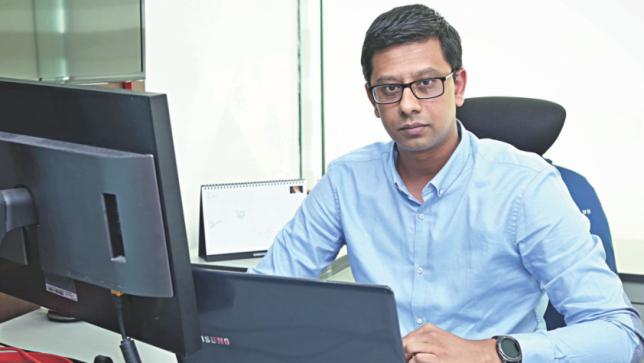Locally assembled Samsung handsets bearing fruit

The local assembly of handsets by Samsung is already bearing fruit as their quality in some cases is better than the imported ones and the prices are also low, said Muyeedur Rahman, head of mobile at Samsung Mobile Bangladesh.
In an interview with The Daily Star recently, he said the leading global handset brand was passing a 15-percent price benefit to customers for the models assembled at the plant in Narsingdi.
Samsung set up the plant with local partner Fair Group last year, buoyed by the government's tax benefit extended to the firms that would assemble mobile phone devices locally.
The tax on the imported mobile phones is more than 32 percent and on the assembled ones is about 18 percent.
“For Samsung, in any given mobile device, the defect ratio is very less and compared with imported handsets, locally assembled devices' defect ratio is 50 percent less, which is quite surprising to us as well,” said Rahman.
“And we are very proud of it,” he added.
Rahman said they were so confident about their local partner's plant that they were offering customers 120 days' replacement warranty on different devices assembled there.
He, however, raised concerns over the overall frequency of illegal imports of handsets to the country.
The country's handset market size is more than Tk 10,000 crore, and illegally imported handsets account for 30 percent of the sum, he said.
The country is losing Tk 800 crore to Tk 1,000 crore in revenue every year because of the illegal imports.
For some brands, in some cases, imports through unauthorised channel are more than 30 percent of what is available in the market and for Samsung it is more than 40 percent, Rahman added.
And due to the unauthorised import, Samsung cannot access the full potential of their assembling plant, he said.
The quality of the illegally imported handsets is not up to the mark, so they can't deliver quality service and even could be a health hazard to customers, according to Rahman.
Samsung is the market leader for smartphones in the country in terms of value, according to the Bangladesh Mobile Phone Importers Association, and has maintained the position for the last couple of years.
The company retained Bangladesh Brand Forum's Best Brand Award in the handset category for 2018.
“This also shows our position and acceptance among customers,” said Rahman.
“From the market leader point of view, we also have a responsibility to maintain the position and enhance our market share.”
The company also pointed out that their main aim is to facilitate the government's goal of ensuring digitalisation with the help of smart handsets.
He also talked about a number of issues in the telecom sector.
Though one year had passed since 4G was launched, feature phones still dominated the market while the smartphone's market share was only about 30 percent, prompting Samsung to concentrate on changing the scenario.
He said the handset industry did not get expected business from the market, especially that from 4G, as there were challenges on the network rollout from the mobile operator's part and that might be a reason for the negative growth of smartphones in 2018.
“Here our target will be to present our Samsung smart devices to consumers more and more. To ensure that goal we are also working on the affordability of customers.”
Rahman said they wanted to synchronise Samsung with the local culture and lifestyle and it is the main target of the company for 2019.
The local smartphone market is mainly driven by replacements where the same old customers change phones or brands.
Besides, device vendors can't move to the untapped segment as citizen services are not being digitalised and smart services are not spreading across the country, he said.
“Digital services like ridesharing and food delivery and e-commerce-based services are mostly city-centric and when these same services spread across the country, new customers will feel the urge to move from feature phones to smartphones,” Rahman added.
The telecom regulator introduced a database a couple of months ago which will give a positive impact in the device business segment, he said.
The Bangladesh economy has been growing rapidly for the last one decade and Rahman expects that the economic growth would boost the handset business when illegal imports come to a halt.
In discussing Samsung's business plan, Rahman says the company is seriously mulling to promote its products on online platforms as this segment of market has started to boom.
“We will launch some of our products, especially on online platforms, and in most of the cases we offer discounts for online channels as well,” he said.
In most of the developed countries, more than 30 percent handsets are sold online and it has reached double digits even in Bangladesh's neighbouring countries, but for the local market the figure is negligible, Rahman added.
He said an increase in the use of smartphones would definitely have a positive impact on the economic growth.
Rahman expects Bangladesh's mobile device market to be in the list of the top five to six countries of the world in the next five years as he sees enormous opportunities of this market aligned with the economic growth, young generation and digital ecosystem.
Being a global company, Samsung has serious concerns about e-waste and in Bangladesh it is working on it seriously, said Rahman.
Samsung is working with an e-waste management company, preparing plans to collect devices from shopping malls.
